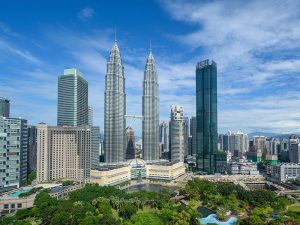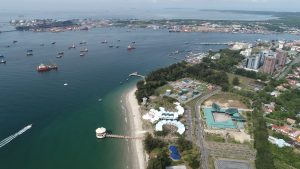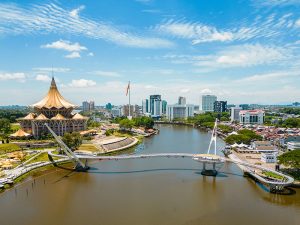In early 2023, the MM2H industry was buzzing with anticipation as plans for an extensive overhaul of the draconian MM2H criteria emerged.
A series of announcements hinted at a more flexible and streamlined approach, prompting me to share my insights on the matter, which you can find in detail here.
Sam’s Comments & Observations on the Revamped MM2H Program
On December 13, 2023, the Minister of Tourism unveiled the broad strokes of the revamped MM2H program, introducing a three-tier system.
Delving into the details, the Ministry of Tourism, Arts, and Culture (MOTAC) issued a press release (Ref: MOTAC. 100-2/1/18JLD4 (38)) on December 13, 2023, emphasising the simplicity and clarity of the new criteria. I echo the Minister’s sentiment that the updated guidelines indeed offer a more straightforward approach.
Here are my thoughts and comments on the new guidelines which were issued in the national language.
The main difference is in the financial requirements & wider range of visas. Under the new guidelines, applicants can choose from three visa tiers with varying durations and corresponding fixed deposit requirements in a Malaysian bank upon approval.
The Silver visa, positioned at the lower end, offers a renewable five-year visa with a more accessible RM500,000 fixed deposit requirement. This is a notable departure from the previous MM2H visa, which mandated a higher fixed deposit and stringent proof of funds such as:
- a minimum monthly income of RM40,000 per month.
- cash of at least RM1.5m in a fixed deposit or current account.
Furthermore, successful applicants had to place RM 1,000,000 in a fixed deposit in a bank in Malaysia.
Interestingly, the new guidelines omit any mention of monthly income requirements, so I’m assuming it has been dropped. Hopefully, these will not come back in the implementation stage as a form of unwritten practice for the authorities to assess the suitability of applicants.
It’s reasonable for the authorities to assess the financial strength of the applicants with the view of ensuring they are not a drain on the country, but I’m optimistic the financial threshold will be a reasonable one because the driver of the new guideline is now the Ministry of Tourism who is more pro-investment.
Previously, business people or retirees who derive their income from business profits/investments respectively had difficulties proving monthly income because profits/investments can be erratic, and they may not take a regular salary, so this took out a significant chunk of potential applicants. The new guideline addresses this glaring limitation.
The 3 tier categories also allow Malaysia to attract applicants of varying income levels and widen the captive audience, hopefully translating to larger foreign spending.
Additionally, the reduction of the minimum stay from 90 to 60 days per year, coupled with the flexibility for the principal or dependents to fulfil this requirement, is a welcome improvement. This way, the country benefits, and the principal, presumably the breadwinner, has the flexibility to travel for work, etc.
This concession was, however, stated to only apply to applicants in the 30 to 49 age group, although I believe this was an oversight in their haste to announce the much delayed new MM2H guidelines and will be rectified in time by announcing a hopefully more generous way of compliance for the over 49 years category.
In my concluding observation, the requirement for tertiary education has not been explicitly mentioned. I am hoping this is also not included in the assessment of suitability of candidate criteria.
I acknowledge the security & harmony of the country has to be maintained by the Home Office, and there has to be a checklist for the civil servants. A points system could be introduced where having a tertiary education is a guide but not a mandatory condition precedent. After all, Mark Zuckerberg, Sir Richard Branson & Steve Jobs did not complete their tertiary education.
Of course, new guidelines usually have room for improvement, and the Minister recognises this by saying they will observe the implementation of the new guideline for a year and carry out the necessary improvements.
Executive Summary of the 2024 MM2H Guidelines (5-Minute Read)
The 2024 MM2H guidelines introduce three tiers: Platinum, Gold, and Silver, each with distinct benefits and financial requirements.
Platinum
The applicant needs to place RM5,000,000 in a Fixed Deposit in a bank in Malaysia in exchange for Permanent Residence for the applicant.
Gold
The applicant needs to place RM2,000,000 in a Fixed Deposit in a bank in Malaysia in exchange for a 15-year renewable visa for the applicant.
Silver
The applicant needs to place RM500,000 In a Fixed Deposit in a bank in Malaysia in exchange for a 5-year renewable visa for the applicant.
Other requirements/benefits:
Withdrawals
After a year, up to half the Fixed Deposits can be withdrawn for purchasing property, healthcare & tourism within Malaysia.
Minimum stay
There is a minimum stay in Malaysia of 60 cumulative days per year. For pass holders between the ages of 30 and 49 years, this is considered fulfilled if either the principal pass holder or his/her dependents stay the 60 days.
Dependents
The successful pass holder can bring with him/her the following dependents:
- Spouse.
- Biological child / stepchild / adopted child up to 21 years old, and if they do not work or are unmarried, this can be extended to age 34 years.
- A child with disability with no age restrictions.
- Parents / parent in-laws.
| New 2024 MM2H (3 tiers) |
Old MM2H (Single Tier) |
|
| Type of Pass & Duration |
Platinum – Permanent Residence Gold – 15-year visa – Renewable Silver – 5-year visa – Renewable |
5 + 5yrs Social Visit Pass (Renewable) |
| Financial & Other Qualifying Criteria at application |
To be advised |
Must show liquid assets of RM1.5 million cash, e.g. Current account or fixed deposit. Not property or investments. Must show income of RM40,000/- per month. Possess tertiary education or Professional qualification. Letter of Good Conduct (LOGC). |
| Financial & Other Conditions to be fulfilled after approval |
Place Fixed Deposit (FD) in Malaysian account:- Platinum – RM5,000,000/- Gold – RM2,000,000/- Silver – RM500,000/- In the 2nd year can withdraw 50% for purchase of property, medical expenses and domestic tour. Gold & Silver – For the 50% withdrawal, the property price must be at least RM750,000 Platinum – For the 50% withdrawal, the property price must be at least RM1.5M
TBA |
Place RM1,000,000/- Fixed Deposit (FD) in Malaysian account. No possibility of PR. Place a further RM50,000/- FD per additional dependent if main applicant below 50 years old.
In the 2nd year can withdraw 50% for purchase of property, car, children’s education and medical expenses.
Security Bond. Medical check-up. Medical Insurance (below 60yrs). |
| Dependents |
Spouse Children, Step Children. Parents & In-Laws |
Spouse Children, Step Children. Parents & In-Laws |
| Minimum Stay in Malaysia per year |
60 days For applicants aged 30-49 yrs, this can be fulfilled by the principal/spouse OR dependents. For applicants above 50 yrs:- To be advised. |
90 days Can only be fulfilled by the Principal & Spouse. (Informally advised by Immigration) |
| Minimum age of applicants |
30 yrs |
35 yrs |
| Mode of Application |
Only through Agents |
Direct through E-MM2H or Agents |
| Visa Fees |
To be advised |
RM500/year |
| Processing Fees |
To be advised |
Principal: RM5,000 Dependent: RM2,500 |
| Application Timeline |
To be advised |
Approximately 6 to 8 months |
| Work |
To be advised |
Part-time work subject to approval |
Clarifications
As the recent announcements are broad strokes of the new MM2H guidelines, I felt this article was premature in the making because the details for the implementation have yet to be announced.
Still, numerous potential applicants & the media had been asking, and since I had done some research for those asking, I didn’t want the research to go to waste, so there are certain caveats to this article.
Here are some matters which need clarification:
Will there be a minimum income requirement?
How are prospective applicants vetted if we don’t have a minimum income requirement? Or will the post-approval fixed deposits placed by the applicants in a bank in Malaysia before the stamping of their passports be adequate? I think the LOGC & some form of proof of financial standing may still be required at the application stage as a pre-screening.
Minimum stay
The fulfilment of the minimum stay requirements by the principal holder or the dependents in the latest guidelines talks only about 49 years and below. What about the older pass holders? I believe the omission of how over 49-year-olds should be handled is a mere oversight and will be addressed shortly.
Permanent Residence
PR in the Malaysian context differs from those in countries like Australia or Singapore. As far as I know, PR holders traditionally do not have a minimum stay requirement. There is a condition for a minimum stay under this new MM2H. How will this be reconciled?
Furthermore, when can the MM2H applicant apply for PR? How long would it take? At the moment, one of the ways of obtaining PR is if you have lived in Malaysia for a very long time.
Even for a foreign spouse married to a Malaysian, the foreign spouse can only apply after 5 years but the 1st application is usually rejected and only after several appeals will the PR be granted.
Can you work?
Will successful holders be able to work? Not everyone wants to play golf all day. My clients bring with them a wealth of knowledge. A skill transfer/mentorship to a Malaysian as a precondition for the foreign visa holder to work could result in a mutually beneficial situation. Also, a definition of what constitutes work would be helpful.
For example, can somebody sit in their apartment in Malaysia and carry out work remotely?
After all, he/she is not depriving a Malaysian of work within Malaysia. Does such a person carrying out remote offshore work need to declare and pay tax?
Allowing offshore work may be a sweet spot, which allows the foreigner to work and for the government to collect taxes.
When to apply?
When can we submit applications under the new MM2H?
While the Minister has announced the main points, the approved agents are being re-vetted, and we are awaiting the application forms.
Premature as this article may be, I hope you find this helpful and may it guide you on whether this programme is for you.
If it is, start gathering the necessary information so that you have them on tap when the applications can be submitted. You can read more about MM2H here.
You can contact us at [email protected] if you require guidance on document preparation.
Wishing you an informed and smooth MM2H journey in 2024!
Sam Choong
December 2023


